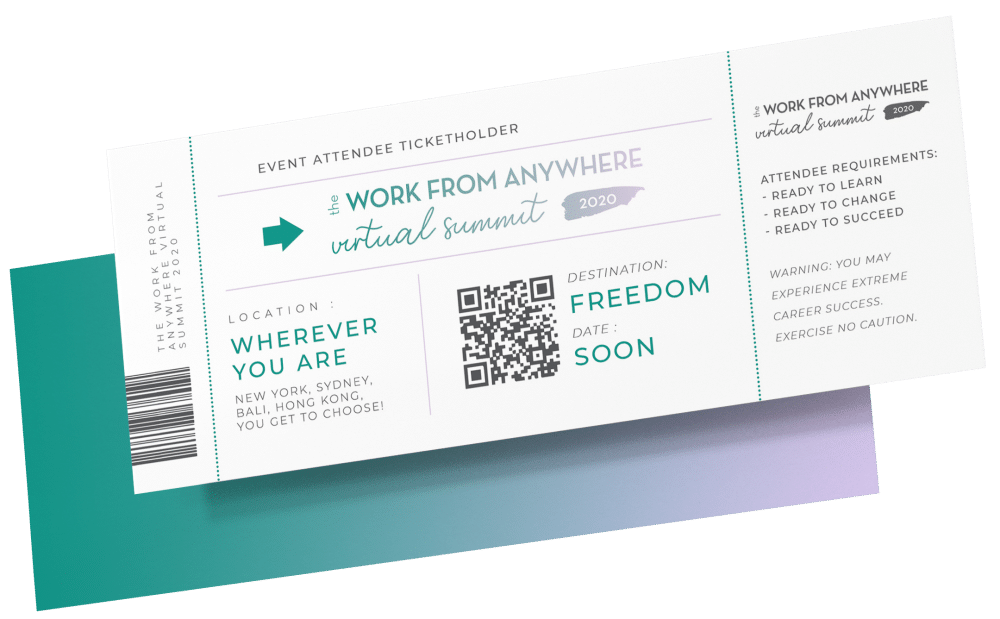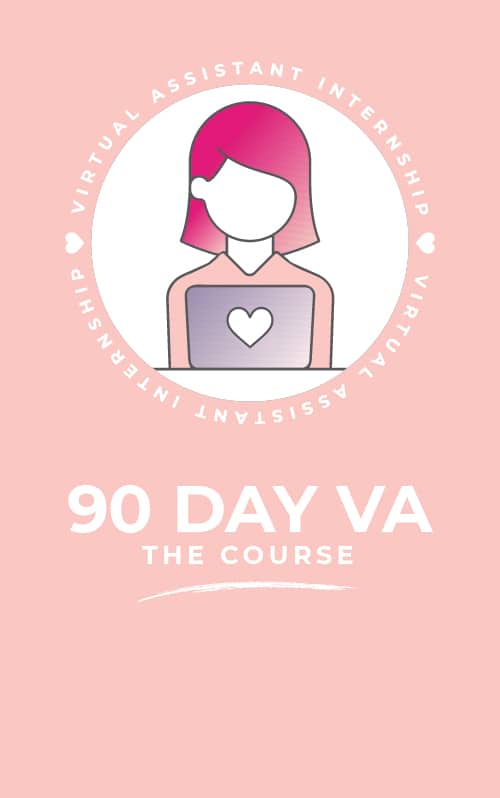This week, I’m very excited to introduce to you my friend Sean Delaney from Whadif, a lawyer here to tell all you American (aspiring) VAs about how to legally set up your online career.
I met him through a business mastermind we’re both in. He’s awesome and has some great tips and tricks to share for you all! He will also help clear up some things about the new laws in California.
Let’s dive in and get you all legally set up as VAs!
Why It’s Important to Get Professional Legal Help
Sean worked in the Fortune 50 space for over 20 years before he left a job at MetLife to go into consulting. He’s consulted for companies like Nike, Uber, J&J and JP Morgan Chase, so he knows his stuff!
He realized that the business fundamentals he was using to help big companies are the same for any size company, so he created his own business framework that would help entrepreneurs implement those same best practices.
He wants you all to know to never be afraid of going to a lawyer for legal advice. He compares it to going to a doctor. You don’t want to go on WebMD to figure out your medical issues, you go to a doctor who has studied for it.
The same goes for lawyers, they can help you out quickly with things that would take you days to figure out. Sure, it costs money, but it’s money well spent for good advice or help.
So with that in mind, let’s go through some of the basic startup questions for people that are new to the independent contractor or virtual assistant world. This really applies to anybody who’s going to work online. We’ll discuss these big questions:
- Which kind of business type is right for you?
- How and where to register your business?
- How to get an employee ID number?
- How to understand your tax responsibilities as a self-employed online worker?
- What is the AB 5 Law in California?
- What is the best way to get paid if your client refuses to pay?
Let’s look at those in more detail!

1. Which Kind of Business Type is Right for You?
There are three main types of businesses, sole proprietor, LLC, and an S corporation. How do you know which one is right for you?
If you do nothing, the government will automatically classify you as a sole proprietor. Sean: “What I always tell people is that anything that the government defaults you to is probably not in your best interest, it’s probably in the government’s best interest.” And you’ll understand why he believes this in a minute.
Sean strongly recommends that when you start a business, you register as an LLC. This means that you’ll have some kind of corporate legal structure that will protect your personal assets. If you ever give any bad advice or do any bad work and you get sued, they cannot come after your personal assets, only after the business assets. It’s really for your own personal protection.
Getting an LLC isn’t difficult either. You file the paperwork once, pay any fees required and you’re good to go. You can have your accountant or a lawyer help you with this, which will probably cost you a few hundred dollars, but you can also do it yourself. It’s totally up to you!
Having an LLC doesn’t make your taxes more difficult either. LLCs have ‘pass-through taxation’, which means that whatever your business earns, you don’t have to file separate taxes for. You can file those earnings with your personal income taxes, so you only file once instead of twice.
It also makes your business look more legitimate, because your LLC is a legal entity entering into a contract with another legal entity.
The last option would be an S corporation. Creating an S corp is only really necessary if you’re going to have investors and shares. There are a lot of additional fees and layers of management involved in an S corporation, so unless you’re making over a hundred thousand dollars, you shouldn’t worry about that (yet).
An S corp is an eligible domestic corporation and it avoids double taxation for U.S. citizens. It means that you act like a corporation and you’re taxed under those rates, but you don’t get taxed on your salary too. So you don’t get double taxed.
Let’s give an example! Normally, if you start a business and you make, say, $1 million, the corporation pays taxes and then you pay taxes on the salary you get paid by your own corporation, so you’d get taxed double on your earnings. Having an S corporation structure avoids that.
And Sean gave another great tip! He mentioned that if you’re still an LLC, but you’re starting to make really high numbers, you can tell your tax professional you’d like to elect to be taxed as an S corporation and you don’t get taxed double either. Amazing!
Especially once you’re growing, it’s really good to have a tax professional. They’re going to look out for your finances and advise you when it’d be time to switch over from an LLC to an S corp.
They’re working for you to save you money in taxes. And they usually pay for themselves in what they save you in taxes!

2. How and Where to Register Your Business?
So how and where do you register your business? According to Sean, as long as you incorporate in the state you live, you reside and do most of your business, you don’t have to worry too much. You’re already a legal entity. It really differs state by state what you need to do exactly.
You can always look into a registration service, they know exactly what to do and can file your business for you. If you already have an accountant, they can also help you with this. If not, it’s easy to figure this out yourself.
Sean mentions that it’s very easy to Google these things. He says that your state wants you to find this information, so they make it easily available. He jokes that “the government is set up to take your money”, so they’re usually very helpful when it comes to these things.
Usually you’ll also have to file a DBA once you’ve registered your business, a “Doing Business As”. You can have multiple brands underneath the LLC you register, as long as you file a DBA for each of them.
As far as working for clients in different states goes, you probably don’t have to file a business in every state, but that does vary per state. It’s really best to hire a professional that can figure all these things out for you, because it will save you a lot of time!
But as long as you’re paying your federal taxes and you’ve paid a licensing fee, you’re usually fine. Just make sure you look into it, especially if you have multiple clients in a state different from yours.
And don’t freak out if you’re reading this and you’re not at these steps yet! Once you get there, you’ll figure these things out. You can hire a tax professional once the time is right for you etc. You can figure it out along the way, as long as you make a good faith effort to do everything the legal way.
3. How to get an Employer ID Number?
Another reason why you want to register as an LLC is because you will automatically get an employer ID number when you do, also known as EIN. Sean calls this the “social security number for your business”. An EIN will allow you to open a bank account, apply for business permits and licenses, hire employees, file taxes, etc. An EIN is crucial!
Without an EIN, you are personally liable if you get sued.
Another very important thing that you need your EIN for, is opening a separate business account. If you don’t have a separate business account and someone sues you, they can point to your combined account and claim you’re not doing business like a corporation, and still sue you for your personal assets.
Make sure your business account is under the name of your business, so it’s all separated. You can then pay yourself from your business account to your personal account, so it’s all separate!
As you can see, that EIN is super important to protect yourself and your assets!

4. Understanding your Tax Responsibilities as a Self-Employed Online Worker
Always make sure you’re setting aside money every month so you’re able to pay your taxes! At VAI we recommend keeping around 20% of your income just for taxes.
Sean recommends that you know how you’re getting taxed. When you have an LLC, you pay your taxes over your personal income. Normally, at the end of the year, the government requires your LLC balance to be zero.
You need to take all the money out of your business account to end up at zero. That’s why most business owners (including me and Sean) pay any expenses possible before the end of the year, so we don’t have to take that out into our personal account and get taxed on it that way.
The balance in your LLC would go into your personal account. You then pay taxes over that when tax season comes, so make sure you set that money aside. And the money in your business account replenishes with your new earnings at the start of the year.
An S Corporation doesn’t have to balance out their books, so they can keep some money in the corporation, but you pay tax over that differently.
5. What is the AB 5 Law in California?
As we all know, the AB 5 law has recently gone into effect in California and there are A LOT of questions on what this means for freelancers. I wanted to know from Sean how this new law affects VAs like you.
Sean mentions that it’s mainly employers that need to worry about this law, not freelancers. Employers need to do an ABC test before they hire someone:
- A: Is the person going to perform their work duties under company control?
- Is the company going to tell them how to dress, when to work, how to work etc.
- B: Is the work the new hire is going to do integral to the company’s business?
- C: Is the person being hired as a freelancer with an independent business?
So first, a company can’t tell you what hours to work or what to wear if they hire you as a freelancer. You get to decide that as a freelancer, and if you can’t, they’re treating you like an employee.
Second, if you’re hired as a VA, you’re usually not integral to the company’s business. This means that you’re not performing the main task they are selling. So if a painting company is hiring you to do their admin, you’re good, but they can’t hire you to paint as a freelancer, because that’s their main business.
Third, it’s really important in California now (and everywhere else) to be an LLC or S corp, so you can show you’re an independent business. It doesn’t really matter if you only have one client or multiple, you yourself need to be a registered business.
So as a VA, you’re usually good to work in California. But in the end, it’s really up to the company hiring you to arrange all the right details around this. It does help to be informed though, so you can improve your chances of working with a potential client by explaining the rules in case they aren’t up to speed.

6. What Is the Best Way to Get Paid If Your Client Refuses to Pay You?
Another question that we get a lot (and I warn against this all the time!) is how to get paid if your client refuses to pay. I always recommend to be paid at least a deposit upfront, but preferably get paid in full upfront. However, if it does happen that you’re supposed to get paid after the work is done, here is Sean’s advice!
Never start off with the idea of suing someone! You catch more flies with honey, so approach your client in a nice way and ask for your money. Maybe offer them a payment plan, but stay nice!
If that doesn’t work, send them a sternly written email. And make sure you document everything!! Send your contract with this email and highlight the parts that deal with payment. If you don’t have a contract, you’re really dependent on your client, so always make sure to have a contract!
If you’re really getting nowhere, you can have a lawyer draft up a letter you can use. This can sometimes scare clients into paying after all. But always try to resolve the issue nicely first.
Suing or small claims court should really be your very last resort. And, Sean warns, always make the consideration if it’s really worth it. Going to court costs a lot of money, so if you’re only owed a small amount, it’s usually not worth it.
Don’t just go to court and lose money on it just because you want to be right. Sometimes you have to take your losses and learn from them.
You won’t have this problem though if you set yourself up for success. Get a deposit at the start, get paid at certain points in a project, or get paid in full upfront. Just make sure you’re never waiting for 100% of your payment after the work is already done to protect yourself from this.
Need More Legal Help?
We want to thank Sean Delaney so much for all the knowledge he shared with us! There’s a ton of information here, so take it all in and learn!
If you want to learn more about Sean or follow him, you can find him and his business Wadif here! He also very kindly bundled all this info into a great document that you can find here.
If this put your mind at ease on how to legally set up your online business, but you’re not really sure what online career you want to jump into, we have got another great resource for you!
In the Work From Anywhere Virtual Summit you can hear from 21 online experts about their expertise, how they got where they are and how you could do it too! There’s also great information on mindset, growing and much more! Did we mention it’s totally free to join?! We hope to see you there!

Sean J. Delaney, CEO of Whadif, is a Disaster/Pandemic Mitigation & Recovery Planning Expert who has consulted and worked with Fortune 500 companies for over 20 years. He helps them develop a strategic plan for mitigation and recovery so that their business operations are not completely derailed when a disaster or pandemic hits. Strategic responses and systems to unexpected disasters are the difference between survival and bankruptcy for a Fortune 500 company.
Sean specializes in strategic planning, organizational effectiveness, supply chain and risk management, and disaster and pandemic planning. He worked for MetLife for over a decade and helped navigate the mitigation and recovery of several pandemics including SARS, MERS, and H1N1. He has consulted with Johnson & Johnson, JPMC, AIG, Jet Blue, Uber, Nike, and a host of others, including companies of all sizes in every industry to get strategies in place for when a crisis occurs. Sean is the CEO of Whadif, LLC and received a Juris Doctorate from Vermont Law School, a Senior Professional in Human Resources designation from SHRM, along with multiple certifications in Strategic Planning, Process Reengineering and Innovation from Harvard and M.I.T.
With his unique blend of knowledge, experience, wit and humor, he has helped businesses of every size strengthen their operations, innovate for the future, plan for disaster and spring back from crisis.





